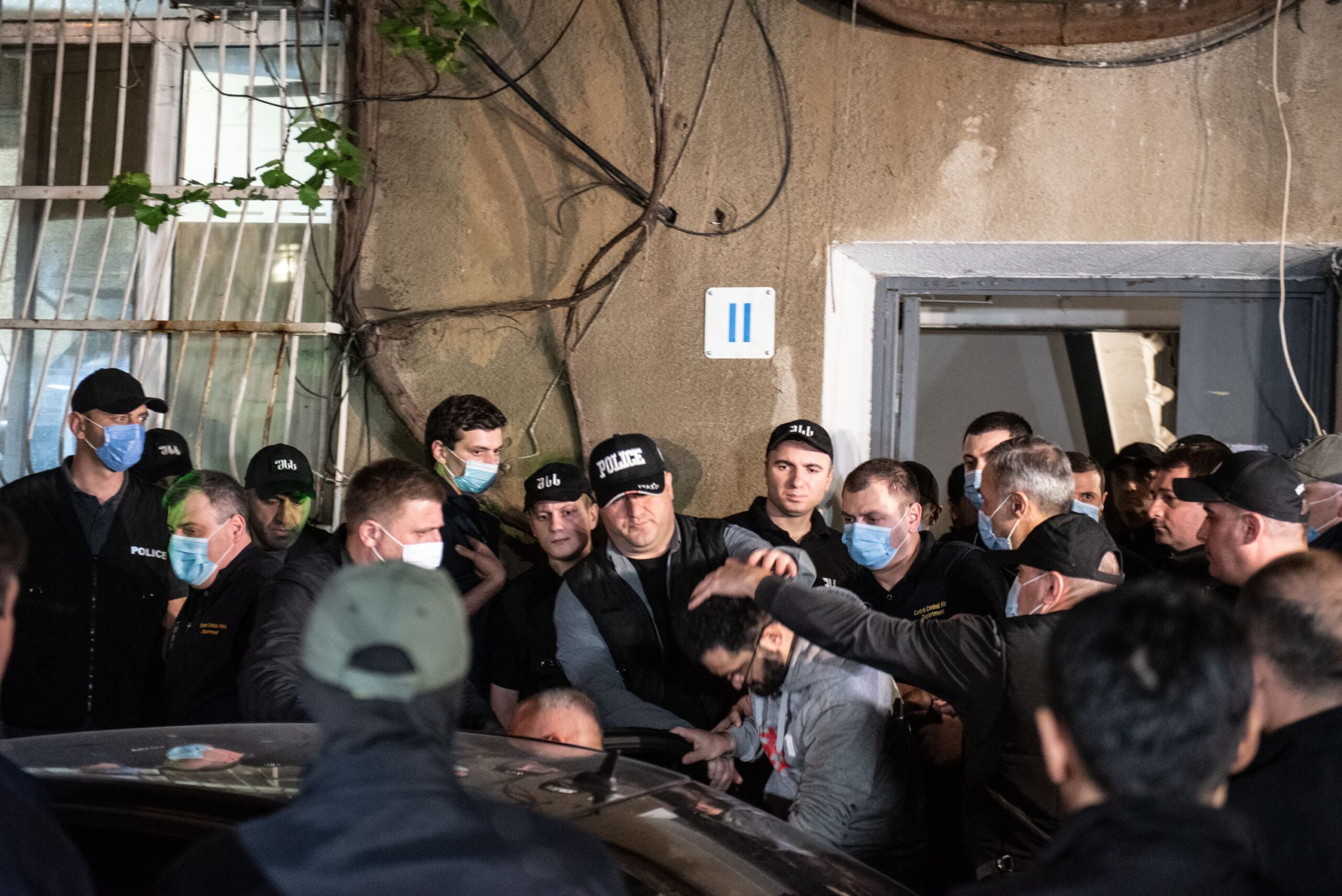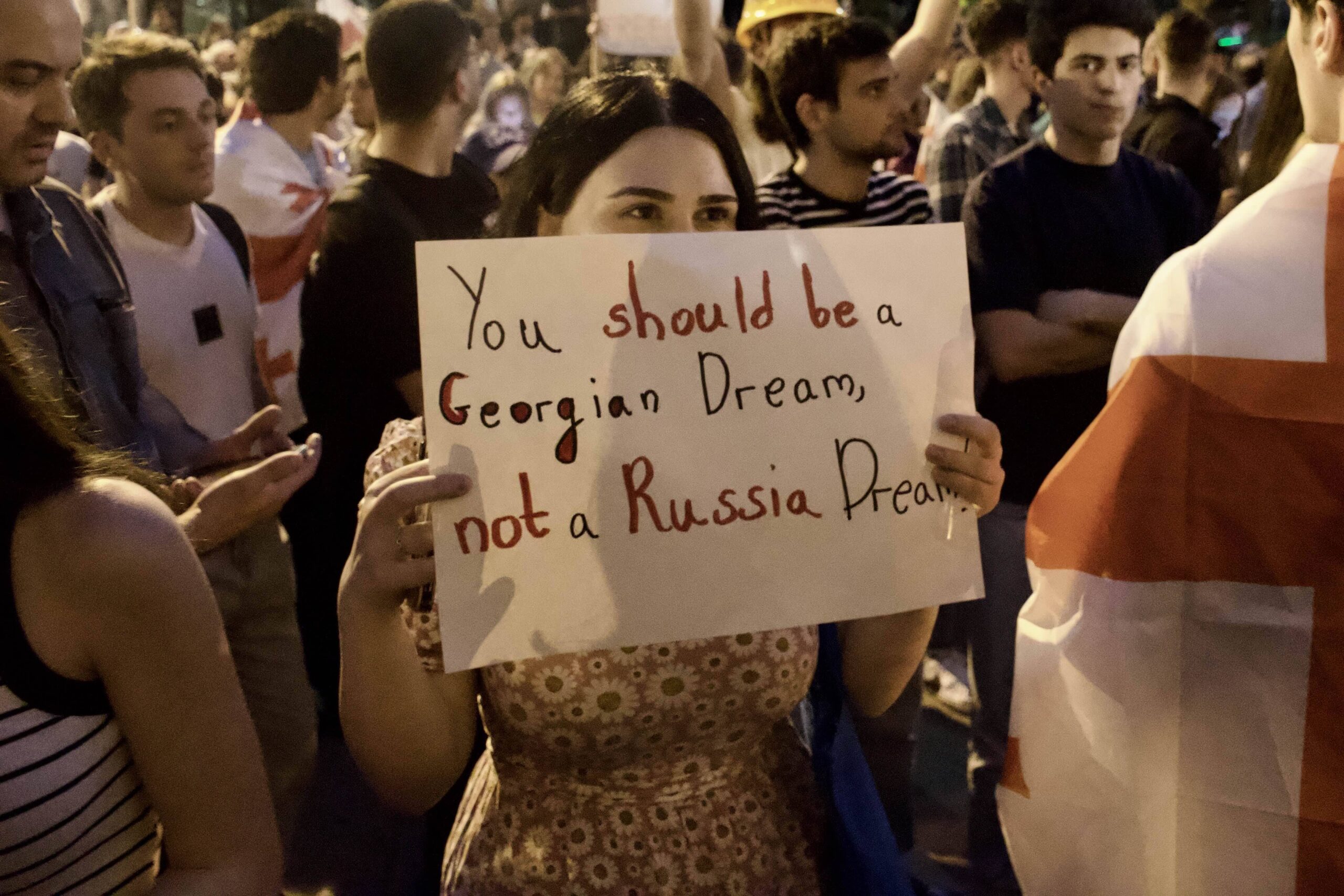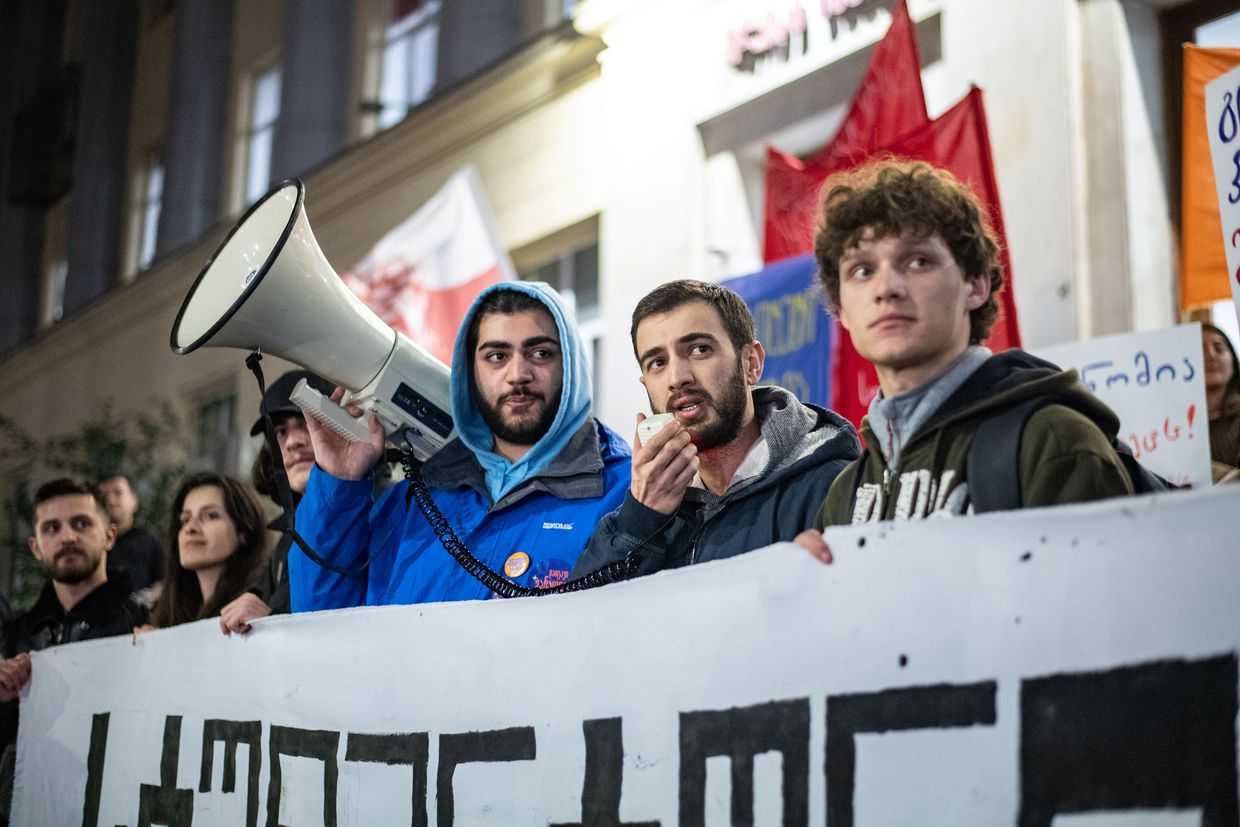
US Secretary of State Anthony Blinken has announced visa restrictions against ‘those responsible for undermining democracy in Georgia’, in response to the government’s foreign agent law and ‘clear indications of a campaign of intimidation and the use of violence to suppress peaceful dissent’.
The statement on Thursday evening did not specify the names of those it would apply to, but said it would include ‘individuals responsible for suppressing civil society and freedom of peaceful assembly in Georgia through a campaign of violence or intimidation’.
The announcement also indicated that the as yet undefined list might expand to include those violating democratic norms ‘in the lead-up to, during, and following Georgia’s October 2024 elections’.
The US Secretary of State also announced a ‘comprehensive review of bilateral cooperation’ with Georgia.
‘It remains our hope’, the statement continued, ‘that Georgia’s leaders will reconsider the draft law and take steps to move forward with their nation’s democratic and Euro-Atlantic aspirations’.
The announcement came just days before the ruling Georgian Dream party is expected to overturn President Salome Zourabichvili’s veto of the foreign agent law, dubbed the ‘Russian law’ due to its resemblance to Russian legislation adopted in 2012 and expanded since to suppress political freedoms.
Georgian Dream adopted the bill in its third and final reading on 14 May amid widespread street protests, a little more than a year after being pressured by similar protests to vote it down.
The government has responded to the popular discontent with police force, accompanied by a campaign of intimidation involving anonymous threatening phone calls and ambushes by masked men on dissidents. The authorities have also filed several criminal proceedings against opponents of the bill while others have faced hefty administrative fines.

Blinken’s announcement came as anger at the Georgian government’s actions has mounted in Washington.
Less than a day before the announcement, Politico reported that a bipartisan bill, the Georgian People’s Act bill, was to be introduced by the US Democratic senator Jeanne Shaheen and Republican Jim Risch. This has been in addition to another legislative initiative — The Mobilizing and Enhancing Georgia’s Options for Building Accountability, Resilience, and Independence (MEGOBARI) Act — authored by the US House Representative Joe Wilson.
The outgoing US Senate Republican leader Mitch McConnell was among the latest to join calls on the Georgian government to reconsider their decision on the law.
‘In an attempt to consolidate its hold on government, the Georgian Dream Party would stamp out the Euro-Atlantic aspirations of the Georgian people’, McConnel remarked on the Senate floor on Wednesday.
‘Of course, this must also be a moment for Georgia’s ruling party to recognise the costs of ignoring their people’s will in order to fulfil Putin’s whims. And to stop short of shredding their relationship with the West’.
The latest move by the US’ top diplomat was also advocated for by major US-based think-tanks the McCain Institute, George W Bush Institute, and Freedom House.
On 22 May, they jointly urged the US government and ‘European allies’ to act against the ‘autocratic Georgian Dream government’ and to ‘immediately impose travel restrictions and financial sanctions against individuals responsible for undermining Georgia’s democratic development and Euro-Atlantic aspirations, including high-ranking Georgian Dream officials and their families.’
Blinken’s decision is understood to be a follow-up on Assistant Secretary of State Jim O’Brien’s unsuccessful attempt to change the minds of the Georgian leadership during a trip to Tbilisi last week. Warning against the bill ‘going forward’, in Tbilisi, O’Brien also mentioned the possibility of financial sanctions against Georgian officials, something Blinken’s announcement stopped short of.
Expectations are also growing among Georgians that measures from the EU may also follow.
A number of EU member states had already warned the Georgian government that passing the bill by overriding the presidential veto next week would preclude their stated goal of launching accession negotiations by the end of the year, and could even jeopardise the country’s visa liberalisation regime with the EU.
On 19 May, French President Emmanuel Macron and German Chancellor Olaf Scholz issued a joint statement in which they expressed their regret over Georgian Dream’s decision to ‘deviate’ from ‘European path’.
Georgian Dream’s peaking anti-westernism
Despite increasing warnings from the US about the possible imposition of sanctions, Georgian Dream leaders remained committed to their promise to legislate against civil society groups in the country, whom they accuse of trying to stage a revolution in Georgia with the support of the US.
[Read more on Georgian Dream’s anti-American rhetoric escalated last year : Georgian Dream hits out at ‘spies’ and Western-funded ‘extremism’]
Since Russia’s invasion of Ukraine, Georgian Dream leaders have also insisted that their founder and honorary chair, billionaire Bidzina Ivanishvili, was already under ‘de facto international sanctions’ for his refusal to involve Georgia in war with Russia.
The party has touted this as part of a conspiracy theory about a ‘global war party’ controlling the West and acting against Georgia’s intrests, a move understood by many observers as an attempt to justify a shift away from the West and towards Russia in a country that leans heavily towards the West.

Georgian Dream’s embrace of anti-Western conspiracy theories has been accompanied by the government embracing a number of conservative and far-right policies, including against ‘gender ideology’ and ‘gay propaganda’.
The sanctions are yet another low point in Georgian-US ties, which successive governments have fostered since the mid-1990s under then-President Eduard Shevardnadze.
However, these would not be the first US sanctions against Georgian officials. In April last year, the US imposed visa restrictions on four Georgians who had been widely assumed to be instrumental in blocking judicial reforms for ‘undermining the rule of law and the public’s faith in Georgia’s judicial system’. Several months later, the US also sanctioned the former Georgian Prosecutor General, Otar Partskhaladze, citing his ties with Russia.
Partskhaladze’s sanctioning led to legislative changes that would prevent the national bank from complying with international sanctions against Georgian citizens without a local court order, leading to the possibility of the national bank being hit with secondary sanctions.
While rejecting calls to investigate any of those sanctioned, Georgian Dream leaders have instead insisted that it was the US government’s responsibility to present evidence of their wrongdoing.
Two days before announcing the reinitiation of the foreign agent bill, the parliamentary majority leader Mamuka Mdinaradze ‘categorically’ demanded that the US lift the visa restrictions on the sanctioned judges.









